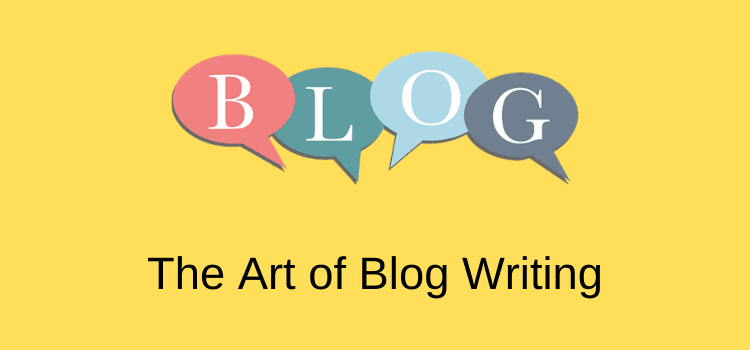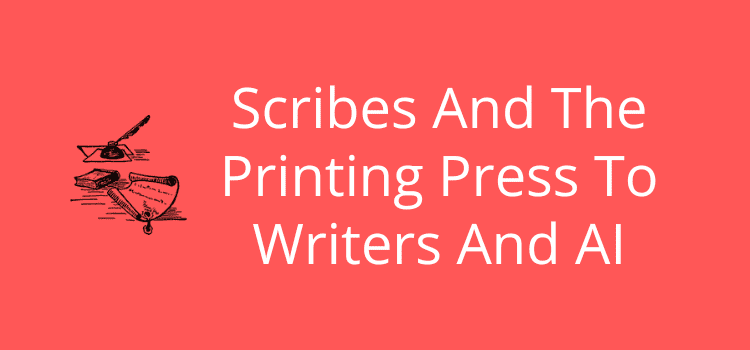
Is history repeating itself? The concerns writers have today with AI (artificial intelligence) must be similar to how scribes feared the printing press.
It’s not difficult to draw comparisons because AI, like the printing press, poses threats to writers’ jobs and livelihoods.
Technology, particularly automation, has always created change and upheaval, and adapting to it can be a long and painful process.
But if it’s any consolation, history tells us that we always manage to adapt. However, that does not mean that it is an easy process. AI poses many challenges for writers now and in the future.
Fear is a natural response to change
AI is a classic example of greed and fear at work.
The advent of ChatGPT in November 2022, like the invention of the Gutenberg printing press in 1440, created the same two reactions.
Greed on the side of the inventors and investors, and fear from workers plying their trade.
But AI is much more than writing. In many ways, it will change and disrupt industries and people’s lives in more fields that we perhaps haven’t even considered.
But for writers, the fear of AI is present and demonstrated by the writer and actors strike in the US and a list of legal proceedings against OpenAI.
Like the scribes feared the printing press, writers today fear automation will replace them.
Ironically, I spent the first half of my working life in printing and publishing, surrounded by printing presses, and the second half as a teacher and writer.
Now, though, I’m a writer and online publisher, so I have to try and get my head around what AI is, what it does, and how it affects me.
Like the scribes probably did, I have to learn to adapt, change my habits, and figure out how to work with AI instead of working against it.
But if you are a writer like me, that’s not easy because the fears of auto-generated writing are hard to avoid.
Hunting for the positives with AI
The only way to adapt to AI and, hopefully, overcome some fears is to use it and find the benefits.
Drawing my parallel with scribes and the printing press again, perhaps they did the same and realized that instead of copying writing, they had to become writers of original content.
In doing so, it might have even been more profitable.
An interesting fact is that William Caxton was a scribe before he introduced the printing press to England in 1476.
“In the epilogue of Book III of the completed translation, entitled The Recuyell of the Historyes of Troye, he tells how his “pen became worn, his hand weary, his eye dimmed” with copying the book; so he “practised and learnt” at great personal cost how to print it.” Source: Britannica.
For writers today, the only approach you can take is to evaluate how AI can improve your writing process and output.
You get paid for words, so how you produce them will become irrelevant.
Remember how we write has progressed from writing by hand to the typewriter, even the dictaphone, and now to a computer and screen.
We work with computers, devices, and online information all day. So perhaps we should look at AI as an extension of how we work and not as a threat. Well, that’s how I am trying my best to adapt.
Don’t use AI to write; use it to help you write
I tried AI writing as soon as I could but realized very quickly how poor it is.
Yes, AI-generated writing seems remarkably perfect in grammar and spelling, but it lacks so much.
Facts are so often incorrect, banal expressions are repeated, and it fails to express experience from a writer’s perspective on a given topic.
But the more I experimented, the more I realized how AI could help me. Here are a few aspects and advantages I have learned to use to help me write.
1. Better research possibilities
When I started my research for this article, I used Google and Bing Search like most writers.
It helped, but when I switched to AI, I got a surprise.
When I used Google Bard, it gave me a fact I didn’t know about scribes and the printing press.
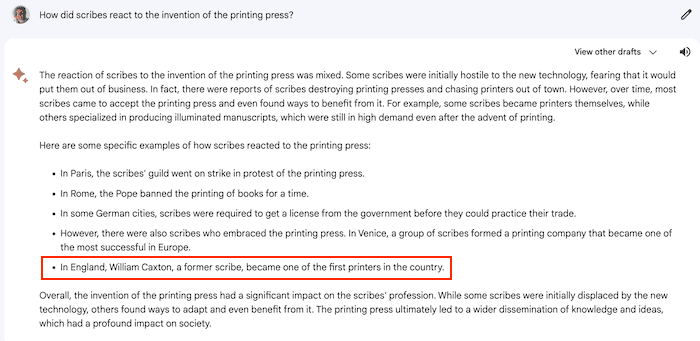
With my background, I thought I knew a lot about William Caxton, but I never knew he was a scribe.
Unfortunately, Bard rarely gives links to support its information, so I hunted on Google Search to confirm the fact.
But I couldn’t find a single source to confirm it.
So I turned to Bing Chat, which I know often gives links to sources.
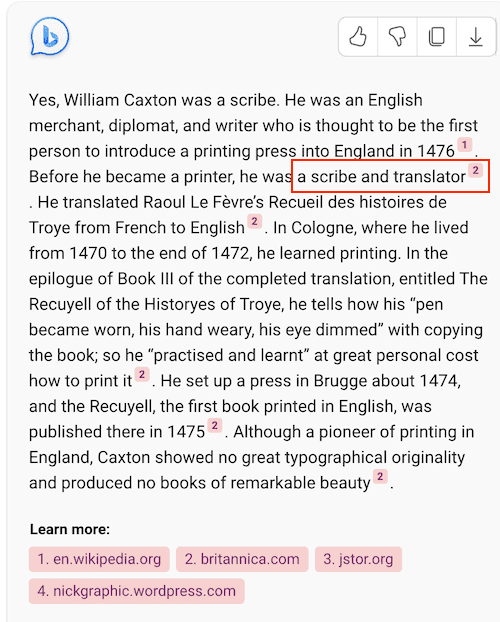
Presto, I found a reliable source with a link and confirmation that Caxton was indeed a scribe.
You can see I noted this discovery earlier in this article and was able to attach a source link.
Using Bard, ChatGPT, and Bing Chat for research is now a habit for me. But hopefully, in the near future, all AI tools like these will support their facts with links to reliable sources.
That will not only be more helpful but will also reward publishers with deserved traffic.
2. Brainstorming and topic ideas
Writers are always looking for ideas and subjects for a new project.
AI has helped me shortcut the process because it can quickly suggest new topics.
All it takes is an appropriate prompt.
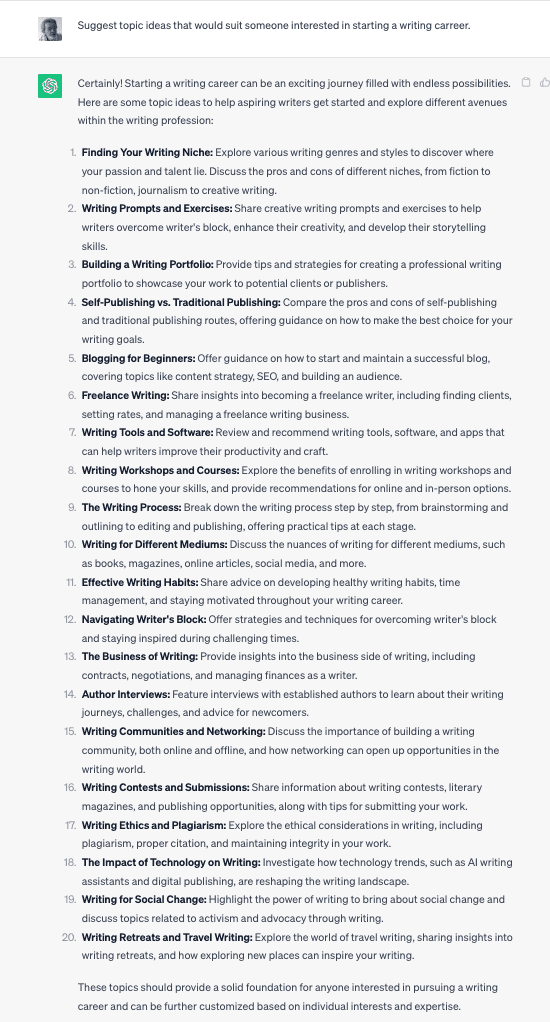
While most of the ideas are not useable, there’s often a gem hiding in a list of suggestions.
When you find one, you can then expand on the idea by asking for heading ideas on a topic.
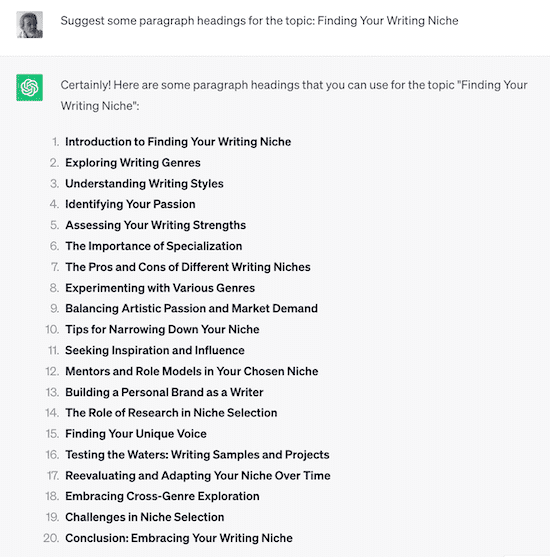
With the results, it’s relatively easy to select the best ideas to create an outline for a new text.
3. Expanding an idea in a text
It’s not unusual to write a few lines and then think there might be more to it.
So, you do more research using search engines to try and expand on your idea.
But with AI, it’s quicker and easier. Here’s an example using a sentence I used earlier in this article.
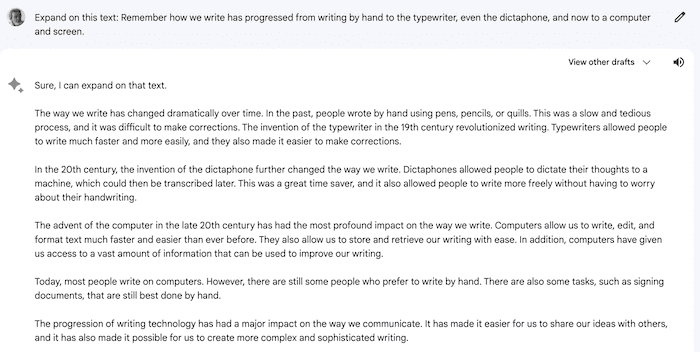
As you can see, there are some interesting aspects that I could have used to bring more detail to the point.
Although I didn’t use the suggestions for this article, I have found the option useful in other texts I have written.
4. A quick rewrite and transform
You often sense that a sentence or two doesn’t sound right or could be better.
AI tools offer a quick way to give you some ideas on rephrasing text.
I don’t use this facility very often, but it can come in handy from time to time.
5. If all else fails, generate a draft
I have to admit that if I’m really stuck for ideas, generating a draft can help.
But that’s what it is, only a draft.
Working on an AI draft always takes me longer than writing from scratch. There’s so much editing, rewriting, and fact-checking to do.
But AI-generated text is the main issue now and is perhaps causing the biggest fears for writers.
The proof is in the thousands of AI-generated ebooks now published on Amazon.
You also often read about major online publishing companies using AI to replace content writers.
These two examples are greed at work. But the quality is usually very poor and often riddled with factual issues.
Should you fear AI?
Yes and no, or perhaps and maybe.
I’m trying my best to adapt to AI, but many issues remain.
One of the biggest concerns is how AI tools and search engines will use it.
At present, it feels like content theft because there are so few, if any, links to the original content.
Bing Chat is the only tool currently that regularly includes some links.
It has a small market share compared to Google, and for me, it delivers around 10% of my traffic.
However, I can see that since the introduction of Bing Chat, the number of clicks per day has decreased by around 20%, yet my average position has remained the same.
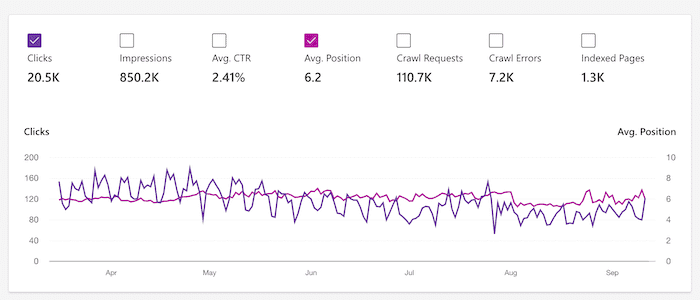
Of more significant concern is how Google will manage search traffic when it introduces Search Generative Experience (GSE).
Google makes most of its money from advertising on publishers’ sites.
I’m hopeful that this fact will ensure that Google continues to deliver traffic to publishers. But there’s no guarantee.
I read a lot of SEO blogs about the possible effects of AI search.
Most say that traffic to publishers will decline, and the best way to combat the losses will be to publish more content using AI. Yes, the irony is hard to escape.
For content writers, the future is an unknown. With AI’s ability to generate content at scale, there is every reason to believe that cost-cutting will happen.
Authors also have cause for concern. With AI ebooks flooding self-publishing, gaining traction in an already overcrowded market will be harder.
Conclusion
I’m usually an optimist, but I have reservations and concerns.
For the scribes, the invention of the printing press replaced their role in book production entirely and quite quickly.
But AI is not so clear-cut. It can help the writing process in many positive ways, but there are also threats to how AI will be used and implemented in the future.
No one knows the answers yet.
But one thing is for sure. There will be a lot of change and upheaval for writers in the years ahead.
Related Reading: How To Use Your Experience And Expertise In Articles
Share This Article
